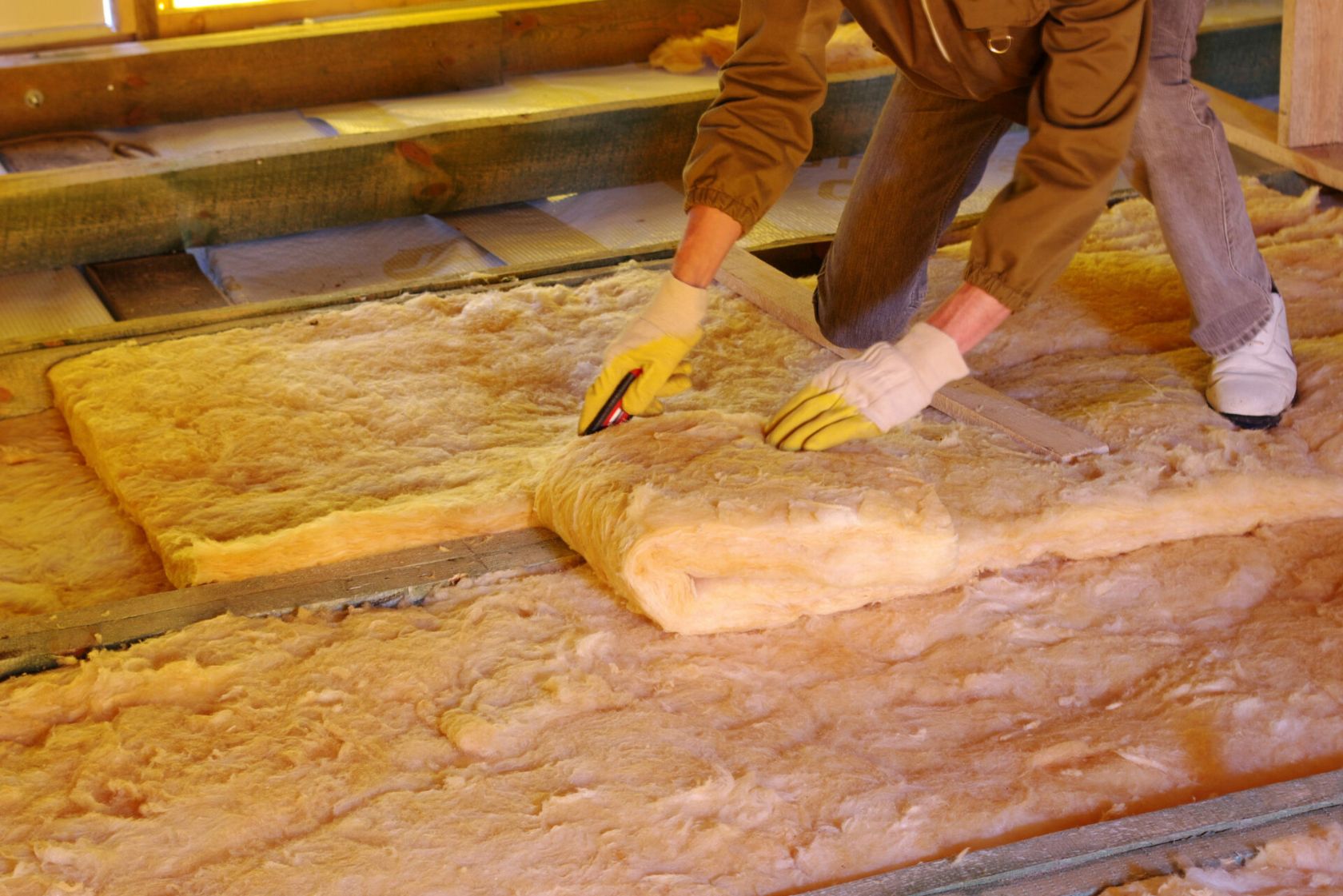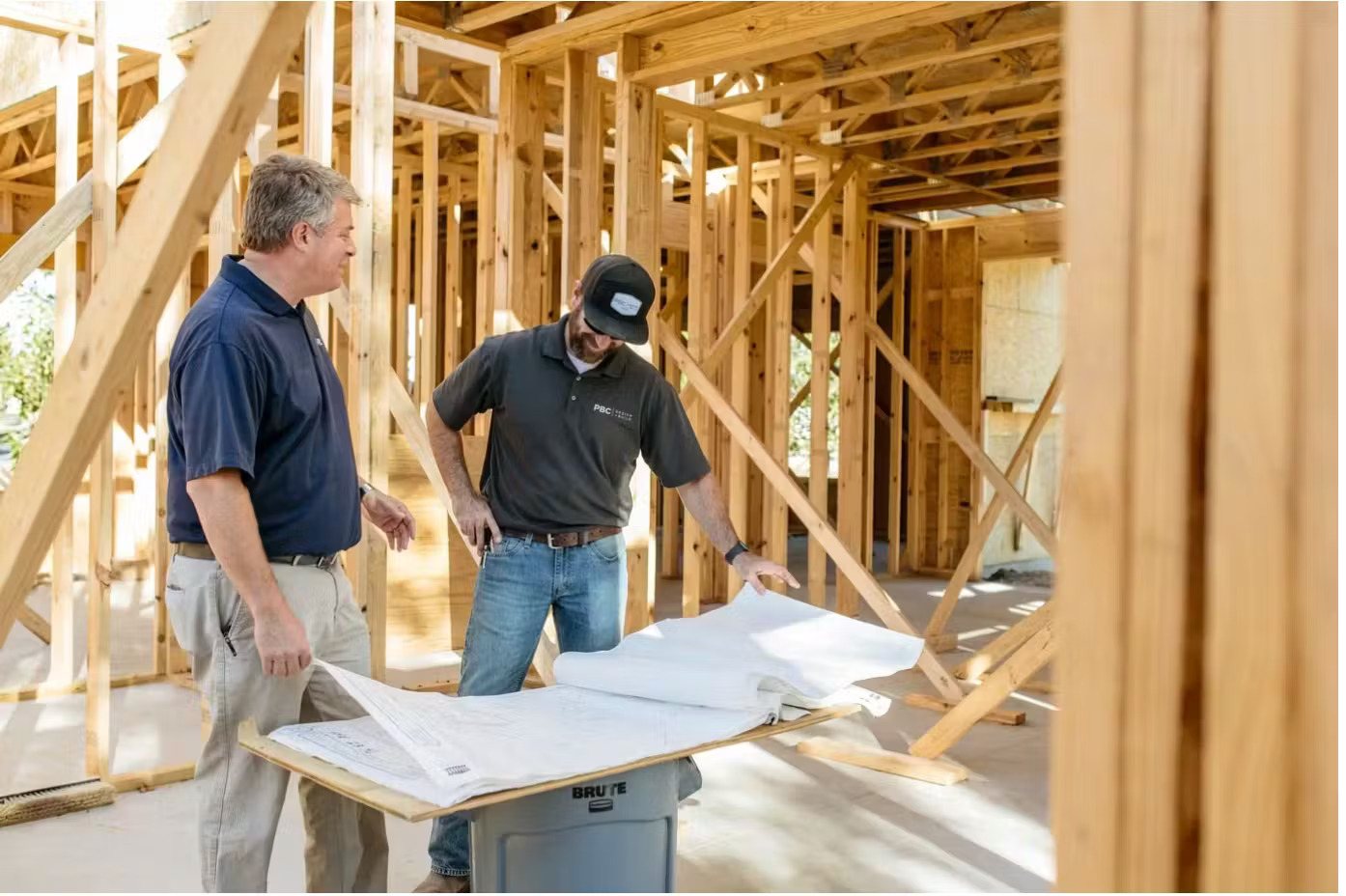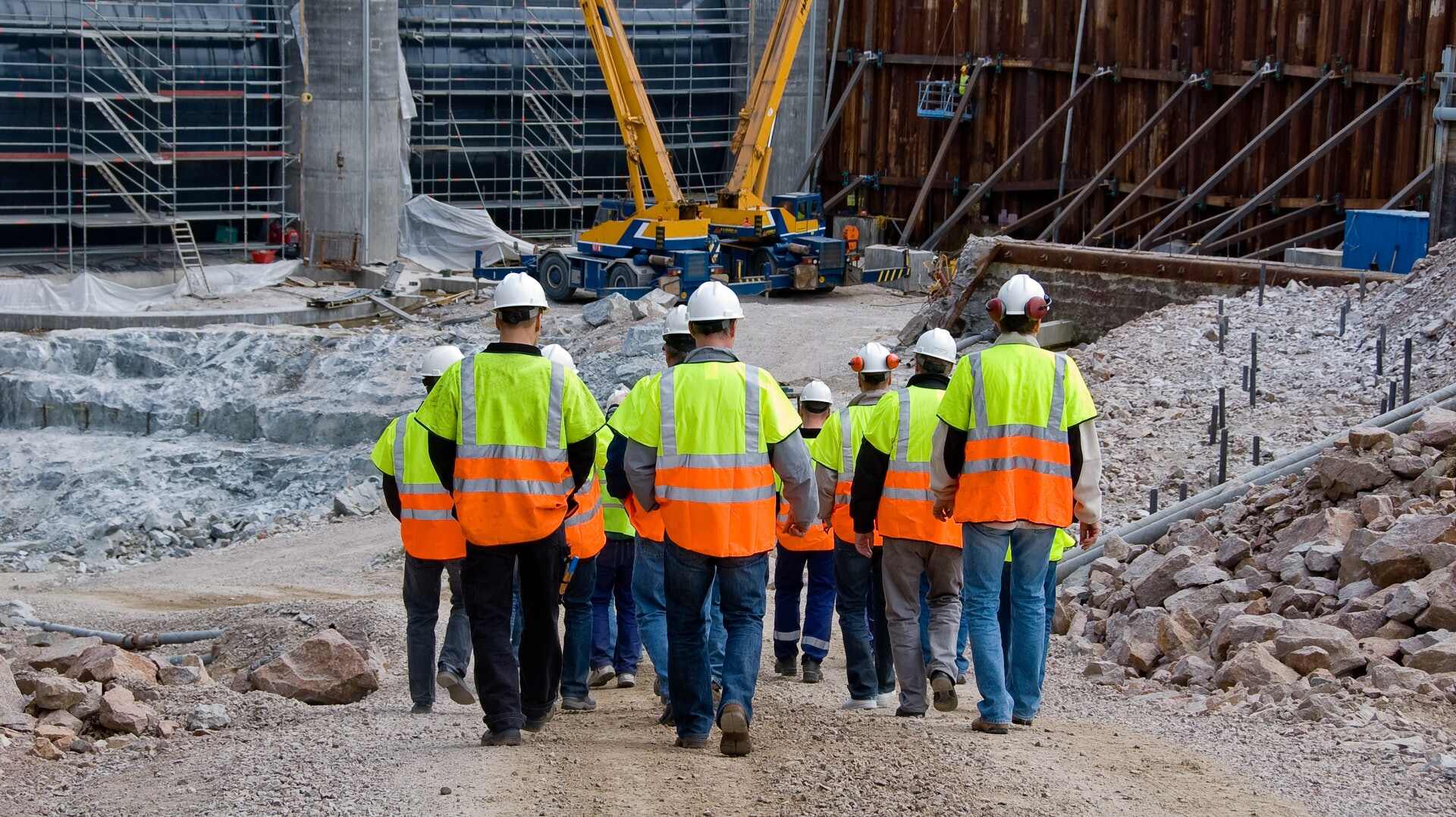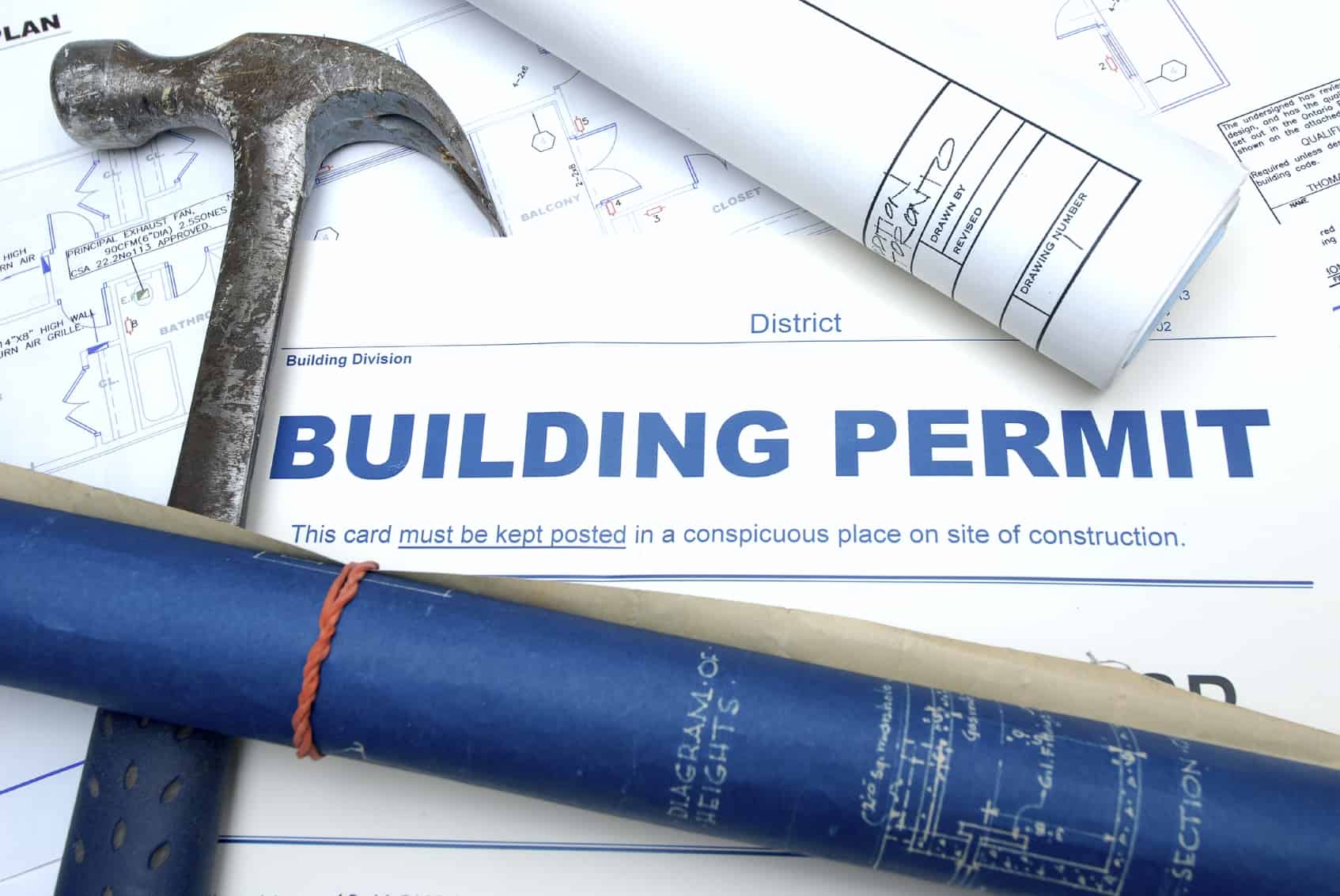Home>diy>Building & Construction>How To Get Certified In Construction


Building & Construction
How To Get Certified In Construction
Modified: December 7, 2023
Get certified in construction with our comprehensive guide. Learn the ins and outs of building-construction and boost your career. Enroll now!
(Many of the links in this article redirect to a specific reviewed product. Your purchase of these products through affiliate links helps to generate commission for Storables.com, at no extra cost. Learn more)
Introduction
Welcome to the world of construction! Whether you’re a seasoned professional looking to enhance your skills or someone fascinated by the art of building, getting certified in construction is an excellent way to improve your career prospects and demonstrate your expertise in the field. From project management to safety regulations, there are numerous areas in which you can specialize and obtain valuable certifications.
In this article, we’ll guide you through the process of getting certified in construction, providing you with valuable insights and tips to make the journey smoother. So, let’s dive in and explore the steps required to become certified in construction.
Key Takeaways:
- Research and choose construction certifications aligned with your career goals. Ensure program accreditation, gather necessary documentation, and prepare thoroughly for the exam to boost your expertise and career prospects.
- Successfully obtaining a construction certification marks the beginning of a journey, not the end. Embrace ongoing professional development, celebrate your achievement, and leverage your certification to unlock new opportunities in the construction industry.
Read more: How To Get Certified In Plumbing
Step 1: Research Certification Requirements
The first step in your journey to becoming certified in construction is to research the specific certification requirements for your desired specialization. Construction certifications vary widely depending on the country, region, and area of expertise. Some popular certifications include Construction Manager Certification (CM), Occupational Safety and Health Administration (OSHA) certifications, Project Management Professional (PMP), and LEED Green Associate, to name a few.
Start by identifying the certifications that are relevant to your career goals and interests. Look for industry-recognized certifications that are widely accepted and valued by employers. Make a list of the certifications that pique your interest and align with your long-term career objectives.
Once you have your list, delve deeper into the specific requirements for each certification. Pay attention to eligibility criteria, educational qualifications, work experience, and any prerequisites such as training courses or exams. Take note of any costs associated with the certification process, including application fees, study materials, and exam fees.
Alongside the requirements, research the credibility and reputation of the certification programs and organizations offering them. Look for programs that have a track record of producing well-rounded professionals and are recognized within the construction industry. Consider reading reviews, testimonials, and talking to industry experts to gather insights and recommendations.
It’s crucial to have a clear understanding of the certification requirements before proceeding further. This will help you make informed decisions and allocate your time and resources effectively throughout the certification process.
Step 2: Choose Your Certification Program
After researching the certification requirements, it’s time to choose the certification program that aligns with your career goals. There are various organizations and institutions that offer construction certifications, each with its own set of benefits and specializations.
Consider factors such as reputation, accreditation, curriculum, and industry recognition when selecting a certification program. Look for programs that are accredited by well-known accreditation bodies and have a strong reputation within the construction industry. Accreditation ensures that the program meets certain quality standards and that the certification will be recognized and valued by employers.
Take into account the specialization you’re interested in and ensure that the program offers courses and resources tailored to that area. This could be construction project management, civil engineering, construction safety, green building, or any other specific field you wish to focus on.
Additionally, consider the delivery format of the program. Some certifications offer in-person classes or workshops, while others may be available online or through a combination of both. Choose a format that aligns with your learning style and schedule.
Another crucial factor to consider is the cost of the program. Evaluate the tuition fees, study material costs, and any additional expenses associated with the certification process. Consider your budget and the value that the certification program will add to your career prospects.
Once you’ve researched and compared various certification programs, make an informed decision based on your findings. Choose a program that best fits your needs, interests, and long-term career goals.
Step 3: Gather Necessary Documentation
Now that you have chosen your desired certification program, it’s time to gather the necessary documentation to meet the program’s requirements. Each certification program will have specific documentation that you need to provide to prove your eligibility and qualifications. Here are some common documents you may need:
- Proof of education: This can include your high school diploma, college degree, or any relevant certifications or diplomas you have earned in the construction field. Make sure to have copies of these documents readily available.
- Work experience records: Many certification programs require a certain number of years of work experience in the construction industry. Gather your employment records, including job titles, responsibilities, dates of employment, and any relevant references or letters of recommendation.
- Training certificates: If you have completed any training programs or workshops related to the certification you are pursuing, gather the certificates or documentation to prove your participation and completion.
- Professional licenses: If you hold any professional licenses or certifications in the construction field, such as an engineering license or a construction management certification, make sure to include copies of these documents as well.
- Personal identification: You may be required to provide a valid identification document, such as a passport or driver’s license, to verify your identity.
It’s important to carefully review the documentation requirements provided by the certification program. Make a checklist of the required documents and ensure that you have all the necessary paperwork ready before proceeding to the next step.
If you are missing any documents or need to update any information, give yourself enough time to obtain the required documentation. This may involve contacting previous employers, educational institutions, or acquiring necessary certifications or licenses.
Gathering the necessary documentation in advance will help streamline the certification process and avoid any delays or complications when submitting your application. Be organized and thorough in collecting and organizing the required paperwork.
Step 4: Prepare for the Certification Exam
Now that you have gathered the necessary documentation, it’s time to buckle down and prepare for the certification exam. The exam is a crucial part of the certification process and requires dedicated study and preparation. Here are some key steps to help you get ready:
- Review the exam format: Familiarize yourself with the structure of the exam. Understand whether it is multiple choice, essay-based, practical, or a combination of different formats. This will help you tailor your study approach accordingly.
- Obtain study materials: Get your hands on the official study materials provided by the certification program. These materials may include textbooks, practice exams, study guides, or online resources. Make sure to thoroughly review and understand the content covered in these materials.
- Create a study plan: Develop a study plan that outlines your study schedule, topics to cover, and specific goals for each study session. Breaking the material into manageable chunks will make studying more effective and less overwhelming.
- Utilize additional resources: Consider using supplementary resources such as online tutorials, industry publications, or study groups to enhance your understanding of the material. Engage in discussions with fellow professionals or seek guidance from experienced individuals in the construction field.
- Practice, practice, practice: Take advantage of practice exams or sample questions provided by the certification program. This will help familiarize yourself with the exam format and improve your time management and problem-solving skills. Analyze your performance in practice exams to identify areas of weakness that require further study.
- Seek professional development opportunities: Attend workshops, seminars, or webinars related to the certification program. These events can provide valuable insights, practical knowledge, and networking opportunities with industry experts.
Preparing for a certification exam requires discipline, commitment, and consistency. Implement effective study techniques such as active learning, regular review, and self-assessment to maximize your chances of success. Remember to take breaks, stay motivated, and maintain a healthy work-life balance throughout the preparation process.
By dedicating sufficient time and effort to your exam preparation, you will increase your confidence, knowledge, and readiness to excel in the certification exam. Stay focused and determined, knowing that your hard work will pay off in the end.
Research and choose a reputable certification program recognized by industry professionals and employers. Ensure the program aligns with your career goals and offers comprehensive training in construction practices and regulations.
Read more: How To Get CAD Certified
Step 5: Register for the Exam
After thorough preparation, it’s time to take the next big step in your certification journey: registering for the exam. The registration process may vary depending on the certification program, so make sure to carefully follow the program’s instructions. Here’s what you need to consider:
- Check exam dates and locations: Find out the available exam dates and locations. Determine which date and location are most convenient for you. Consider factors such as schedule conflicts, travel arrangements, and any other commitments you may have.
- Review registration requirements: Understand the specific registration requirements set by the certification program. This may include submitting your application form, paying the exam fee, and providing any additional documents or information required.
- Submit your application: Complete the registration process by submitting your application form along with any required documentation. Pay close attention to any deadlines specified by the certification program to ensure that your application is processed in a timely manner.
- Confirm your registration: Once your application is submitted, keep an eye out for confirmation from the certification program. This confirmation will typically include details about the exam date, time, and location. Make sure to save this information and mark it on your calendar.
- Prepare for exam day: As the exam date approaches, continue your exam preparations. Review your study materials, revisit challenging topics, and stay mentally and physically prepared for the exam. Get plenty of rest the night before the exam and arrive at the exam location early to avoid any last-minute stress.
Registering for the exam is a significant step towards attaining your construction certification. It marks the final stages of your preparation and signifies your commitment to achieving professional recognition in the field. Approach the registration process with diligence and attention to detail to ensure a seamless experience.
Remember, successfully registering for the exam means you’re one step closer to obtaining your construction certification and unlocking new opportunities in your career.
Step 6: Study and Review Materials
With the exam registration completed, it’s time to dive into an intensive period of studying and reviewing the materials necessary for your construction certification. This step is crucial in ensuring your preparedness and confidence on exam day. Follow these tips to make the most of your study time:
- Create a study schedule: Develop a study schedule that outlines specific time slots dedicated to studying each day. Establish a routine and stick to it. Breaking down the material into manageable chunks will make it easier to digest and retain.
- Focus on the exam content: Review the exam content outlined in the certification program’s study materials. Pay attention to the key concepts, principles, and topics that are likely to be covered in the exam. Prioritize your study efforts based on the weightage and importance of each area.
- Utilize different study methods: Incorporate various study methods to cater to different learning styles. This can include reading textbooks, watching instructional videos, attending online courses, participating in study groups, or working on practice problems. Experiment with different techniques and find what works best for you.
- Take organized notes: As you study, actively take notes to reinforce your understanding of the material. Summarize and condense information in your own words, highlight important points, and create visual aids or diagrams to help you retain information better.
- Engage in active learning: Avoid passive reading and strive for active learning. This involves actively engaging with the material by asking questions, solving problems, and applying concepts to real-world scenarios. Actively test your knowledge through quizzes, flashcards, or practice exams.
- Review and reinforce: Regularly review the material you have covered to reinforce your understanding. Set aside time each week to revisit previous topics and assess your retention. Identify areas of weakness and dedicate additional study time to strengthen your knowledge in those areas.
- Stay organized and manage your time effectively: Break down your study sessions into smaller, focused blocks of time. Use productivity techniques such as the Pomodoro Technique, where you work in focused bursts with short breaks in between. Avoid cramming and allow yourself enough time to fully comprehend and retain the information.
- Take care of yourself: Maintaining a healthy lifestyle is crucial during your study period. Get enough sleep, eat nutritious meals, exercise regularly, and manage stress effectively. A healthy mind and body will enhance your focus, memory, and overall performance.
Remember, studying for your construction certification requires dedication, discipline, and consistency. Stay motivated and maintain a positive mindset throughout the process. Trust in your abilities and the effort you have put in.
By approaching your study materials with a structured plan and a proactive learning approach, you will significantly increase your chances of success on the exam day. Stay focused, work hard, and visualize the moment when you will proudly hold your construction certification in your hands!
Step 7: Take the Certification Exam
It’s exam day – the culmination of your preparation and hard work in obtaining your construction certification. This step marks the moment when you put your knowledge and skills to the test. Follow these tips to help you thrive during the certification exam:
- Arrive early and be prepared: Plan to arrive at the exam location with plenty of time to spare. This will allow you to familiarize yourself with the surroundings, review any last-minute notes, and relax before the exam begins. Make sure to bring all the required items, such as identification documents, admission tickets, calculators (if allowed), and any permitted study materials.
- Read the instructions carefully: Before diving into the exam, read through the instructions provided. Understand the format of the exam, any specific guidelines or time limits, and how the questions are organized. Pay close attention to any special requirements, such as marked answers on multiple-choice exams or structured responses on essay-based exams.
- Manage your time effectively: Budget your time wisely throughout the exam. Divide the total number of questions by the allotted time to determine how much time you can spend on each question. If you encounter a difficult question, quickly decide whether to spend more time on it or move on and come back later.
- Prioritize easy questions first: Start by answering the questions you are confident about. This will help you build momentum and boost your confidence. By completing the easier questions first, you can also save time to focus on the more challenging ones later.
- Stay calm and focused: Keep a calm and composed mindset during the exam. Take deep breaths, relax your mind, and stay focused on the task at hand. Don’t let any distractions or nervousness affect your performance.
- Double-check your answers: If time allows, review your answers before submitting the exam. Pay attention to any mistakes or areas where you may have misunderstood the question. Check for spelling errors or missing information in essay-style responses.
- Submit your exam with confidence: Once you have reviewed your answers, confidently submit your exam. Trust in your preparation and the knowledge you have acquired throughout your studying journey.
Remember, taking the certification exam can be challenging, but it is also an opportunity to demonstrate your expertise and capabilities. Trust in your abilities and approach the exam with a positive mindset.
Regardless of the outcome, view the exam as a valuable learning experience. Celebrate your efforts and the journey you have undertaken to reach this point. If successful, be proud of your accomplishment. If not, use it as motivation to identify areas for improvement and continue growing in your construction career.
Keep in mind that the certification exam is just one aspect of your journey. It is a stepping stone towards a successful and fulfilling career in the construction industry. Embrace the process, celebrate your achievements, and continue to expand your knowledge and skills.
Step 8: Receive Your Certification
Congratulations! You have completed all the necessary steps and taken the certification exam. Now it’s time to eagerly anticipate receiving your construction certification, which validates your expertise and distinguishes you as a qualified professional in the field.
Here’s what you can expect during the process of receiving your certification:
- Exam grading and evaluation: After you have submitted your exam, the certification program will evaluate your performance. This process may take some time, depending on the complexity and volume of exams to be graded.
- Waiting period: During the waiting period, it’s important to be patient. Use this time to reflect on your journey, continue learning, and explore new opportunities to further develop your skills within the construction industry.
- Certification notification: Once your exam has been evaluated, you will receive official notification from the certification program regarding the outcome. This notification will indicate whether you have successfully passed the exam or if any further steps are required.
- Certificate issuance: If you have passed the exam, the certification program will issue your official certification. This may come in the form of a physical certificate, a digital badge, or both. The certificate will be a testament to your hard work and dedication in achieving your construction certification.
- Celebrate and showcase: Upon receiving your certification, take a moment to celebrate your accomplishment. Share the good news with your colleagues, friends, and family. Update your resume and professional profiles to reflect your newly acquired certification.
- Continued professional development: Remember, your certification is not the end of your professional journey but rather a stepping stone for ongoing growth in the construction industry. Stay updated on industry trends, seek new learning opportunities, and continuously strive to enhance your skills and knowledge.
Receiving your certification is a significant milestone in your construction career. It represents your dedication, expertise, and commitment to professional development in the industry. Be proud of your achievement and the recognition it brings.
As you move forward in your career, remember that your certification is an ever-present reminder of your capabilities. Embrace new challenges, seek opportunities to apply your knowledge, and continue expanding your horizons within the construction field. Your certification serves as a testament to your competence and will open doors to new and exciting possibilities in the industry.
Congratulations once again on your remarkable accomplishment. Your journey in the construction industry is just beginning, and your certification is a testament to your potential for success.
Conclusion
Obtaining a construction certification is a valuable and rewarding endeavor that can enhance your career prospects and demonstrate your expertise in the field. Through the eight-step process outlined in this article, you are equipped with the knowledge and guidance needed to successfully navigate the certification journey.
Starting with thorough research on certification requirements, you gained an understanding of the certifications available and their specific criteria. By choosing the right certification program, you ensured that you enrolled in a reputable and recognized program that aligns with your career goals.
Gathering the necessary documentation provided the foundation for your application, substantiating your eligibility and qualifications. With ample preparation and dedicated study sessions, you honed your knowledge and skills to excel in the certification exam.
By registering for the exam and confidently taking the test, you demonstrated your commitment and readiness to showcase your construction expertise. The anticipation of receiving your certification is well-deserved and signifies the recognition of your accomplishments.
Remember, your certification is not the culmination of your journey, but rather a stepping stone to continued professional development. Embrace a mindset of lifelong learning, seek growth opportunities, and stay updated with industry advancements.
Congratulations on embarking on this remarkable journey to become certified in construction. Your dedication and determination have set you on a path to success in the dynamic and ever-evolving field of building construction. Embrace the opportunities that come your way, and let your certification elevate your career to new heights.
Frequently Asked Questions about How To Get Certified In Construction
Was this page helpful?
At Storables.com, we guarantee accurate and reliable information. Our content, validated by Expert Board Contributors, is crafted following stringent Editorial Policies. We're committed to providing you with well-researched, expert-backed insights for all your informational needs.














0 thoughts on “How To Get Certified In Construction”